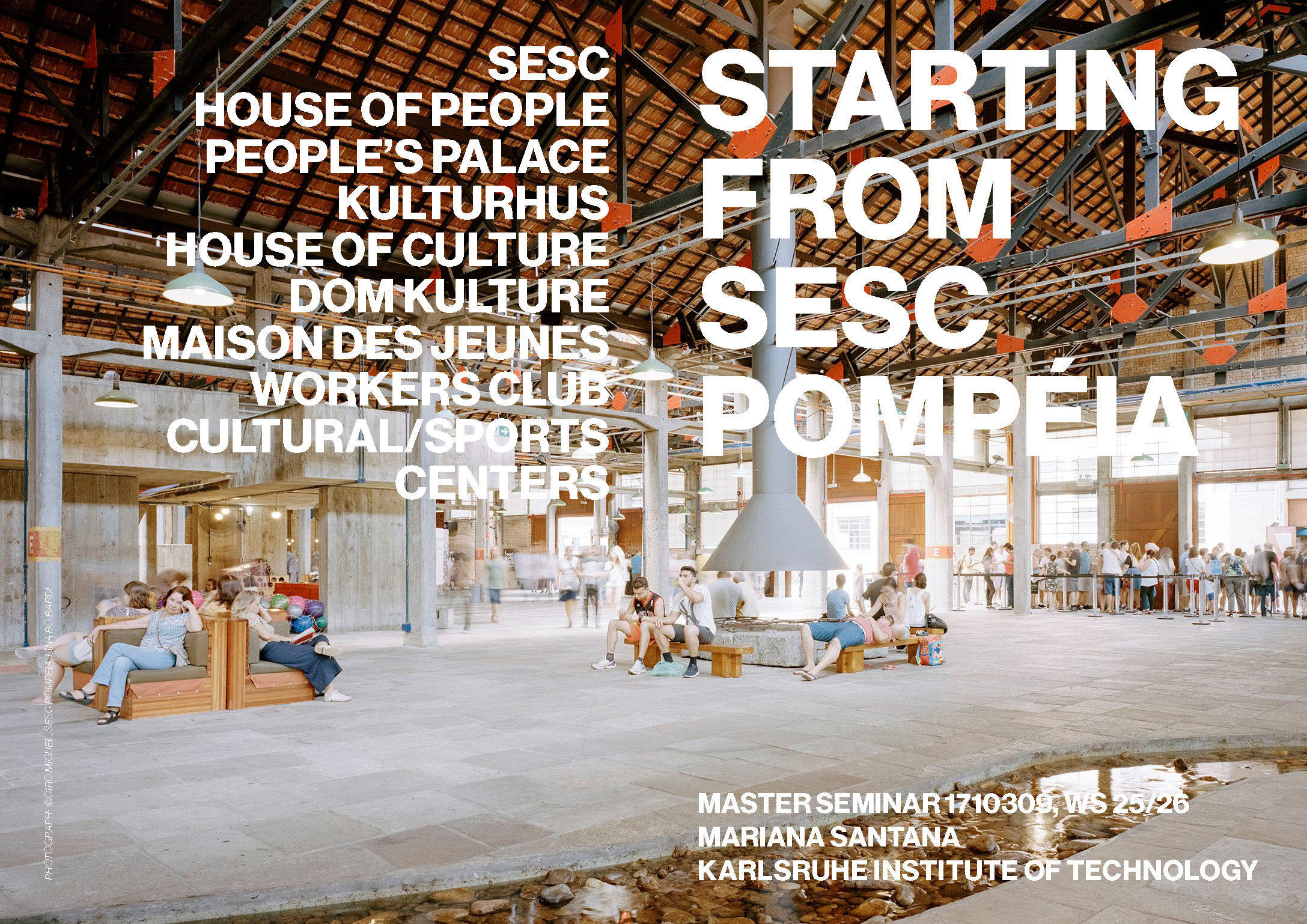Masterseminar

EN
STARTING FROM SESC POMPÉIA
In 1977, Lina Bo Bardi began turning an old metal factory into SESC Pompéia—a typology for leisure, culture, and community well-being. Today, SESC has 600+ units across Brazil; its singular institutional model helps explain this reach, but not alone. The seminar aims to explore the influences that led to the creation of SESC Pompéia, its impact on subsequent SESC buildings, the architect's role, and the ongoing expansion of SESC Pompeia's global influence as a leading architectural reference. We will map parallels with “Workers Clubs,” “Maisons du Peuple”, “Dom Kulture”,“Kulturhus”. Framing architecture as an expanded, networked practice, our methodology expands from understanding singular projects within broader political, temporal, and typological constellations. We will develop tools for architectural research that embrace multiplicity—questioning not merely what buildings are, but how they evolve, who inhabits them, and why some endure while others fail.
Language: English
Event Format: Blended (On-Site/Online)
Schedule: Each second week - Wednesdays
First meeting: 05.11.2025 at 9:30h, Geb. 20.40-R221
Number of Participants: Maximum 16
Final Presentation: 04.03.2025
Form: Individual work and group work
Mariana Santana
DE
STARTING FROM SESC POMPÉIA
In 1977 begann Lina Bo Bardi, eine alte Metallfabrik in SESC Pompéia zu verwandeln – einen Prototyp für Freizeit, Kultur und Gemeinwohl. Heute zählt SESC über 600 Einheiten; das Institutionsmodell erklärt vieles, aber nicht alles. Das Seminar untersucht die Impulse zur Entstehung von SESC Pompéia, seine Wirkung auf spätere SESC-Bauten, die Rolle der Architektin und seine globale Ausstrahlung als Referenz. Wir kartieren Parallelen zu Workers’ Clubs, Maisons du Peuple, Dom Kulture, Kulturhus. Architektur fassen wir als erweiterte, vernetzte Praxis: Wir verorten Einzelprojekte in politischen und typologischen Konstellationen und entwickeln Werkzeuge, die Vielstimmigkeit zulassen – fragend, wie Bauten entstehen, wer sie bewohnt und warum manche bestehen oder scheitern.
Sprache: Englisch
Format: gemischt ( vor Ort/Online)
Zeitplan: Jede zweite Woche - mittwochs
Erstes Treffen: 05.11.2025 at 9:30h, Geb. 20.40-R221
Teilnehmerzahl: 16
Abschlusspräsentationen: 04.03.2025
Output: Gruppen- und Einzelarbeit
Mariana Santana
